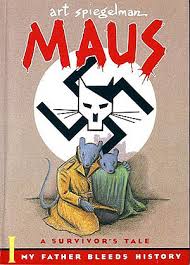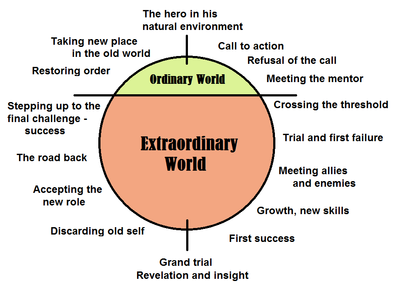
For those of you who don't know, Maus is a graphic novel created by Art Spiegelman, the son of a Holocaust survivor, and as far as books that push the boundaries and redefine genres go, this one goes about as far as possible.
It was one of the first of its kind in many ways, perhaps the most important being that it was the first graphic novel to address an issue as serious as the Holocaust. It was also released before it became a trend (for lack of a better word) to release books and movies on the Holocaust. And the way that Maus did that was so new and so intense that people are still talking about it decades after it was first published.
I don't read a lot of historical fiction, especially about the Holocaust (although I did just read Night by Elie Wiesel for the second time and enjoyed it even more than the first) but Maus was a real attention grabber. The extended metaphor of Jewish people being portrayed as rats/mice and the Germans as cats is fascinating to me. The message conveyed by the pictures and limited words is powerful, and the framing of the story is great (read the first couple of pages and you'll know all that you need to about the framing of this book).
It's a tremendous and powerful read, and people are still talking about it today. Schools like the one I am teaching at are even reading it as part of their curriculum.
I recommend this book even if you are not interested in Holocaust literature because it is so interesting and well done, the medium is so different from what we have come to expect, and it is a read that can be done in a couple of hours and still deliver a powerful punch.
I included below a link to an interview with Art Spiegelman which deals with Meta-Maus, a book and DVD which was released in the hopes that all of the talk about Maus would die down some. It didn't work, which is why there is an interview about it, but I feel that the interview, though short and about Meta-Maus, really enriches the whole Maus experience.
I suggest that you read Maus, and if not I hope that you will consider at least watching the interview, because it really is great to absorb even a little bit of what went into this book that made such a difference in how information about the Holocaust can be shared.

 RSS Feed
RSS Feed